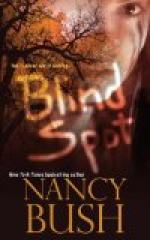Jerome was a strong man, of iron nerve, and well set against emotion; in the run of his experience he had been plumped into many startling situations; but none like this. The croon of the old lady thrummed in his ears with endless repetition. He picked her up tenderly and bore her to another room and placed her on a ragged sofa. There were still marks on her face of former beauty. He wondered who she was and what had been her life to come to such an ending.
“Now there are two,” the words were withering with oppression. Subconsciously he felt the load that crushed her spirit. It was as if the burden had been shifted; he sensed the weight of an unaccountable disaster.
The place was musty and ill-lighted. He looked about him, the dank, close air was unwashed by daylight. A stray ray of sunshine filtering through the broken shutter slanted across the room and sought vainly to dispel the shadow. He thought of Dr. Holcomb and the old lady. “Now there are two.” Was it a double tragedy? First of all he must investigate.
The place was of eleven rooms, six downstairs and five on the upper story. With the exception of one broken chair there was no furniture upstairs; four of the rooms on the lower floor were partly furnished, two not at all. A rear room had evidently been to the old lady the whole of her habitation, serving as a kitchen, bedroom, and living-room combined. Except in this room there were no carpets what-ever. His steps sounded hollow and ghostly; the boards creaked and each time he opened a door he was oppressed by the same gloom of dankness and stagnation. There was no trace of Dr. Holcomb.
He remembered the bell and sought vainly on both floors for anything that would give him a clue to the sound. There was nothing. The only thing he heard was the echoing of his own creaking footsteps and the unceasing tune that dinned in his spirit, “Now there are two.”
At last he came to the door and looked out into the street. The sun was shining and the life and pulse was rising from the city. It was daylight; plain, healthy day. It was good to look at. On the threshold of the door he felt himself standing on the border of two worlds. What had become of the doctor and who was the old lady; and lastly and just as important, who was the Rhamda and his beautiful companion?
Jerome telephoned to headquarters.
It was a strange case.
At the precise minute when his would-be auditors were beginning to fidget over his absence, the police of San Francisco had started the search for the great doctor. Jerome had followed his intuition. It had led him into a tragedy and he was ready to swear almost on his soul that it was twofold. The prominence of the professor, together with his startling announcement of the day previous and the world-wide comment that it had aroused, elevated the case to a national interest.
What was the Blind Spot? The world conjectured, and like the world has been since beginning, it scoffed and derided. Some there were, however, men well up in the latest discoveries of science, who did not laugh. They counselled forbearance; they would wait for the doctor and his lecture.




